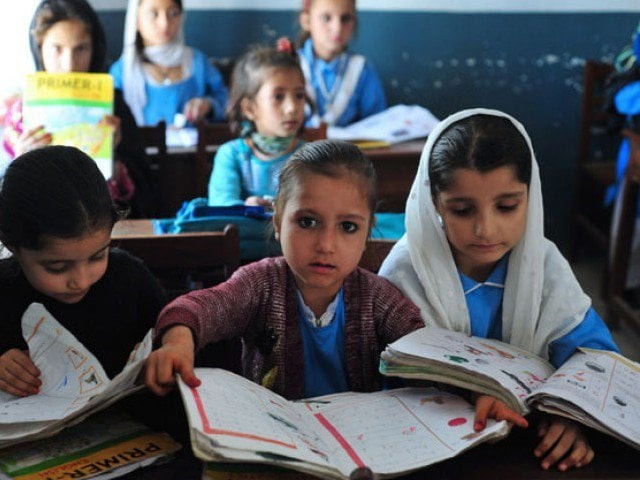Educating minorities
There is not a single ethics teacher for non-Muslim students in Khyber-Pakhtunkhwa

Catering to diversity is a challenge everywhere, and in a country as polarised as Pakistan, the challenge is particularly difficult to address. PHOTO: AFP
Minority students have a right to an equal education as defined by the Constitution. In K-P, non-Muslim children are taught, where they are taught at all, using textbooks ‘imported’ from Punjab. This is clearly discriminatory. Calls from leaders of the minority teachers associations for the balance to be redressed appear to have fallen on deaf ears, a situation contrary to that of how the demands of the Jamaat-e-Islami (JI) are met. The JI can seemingly twist and skew the curriculum and textbooks to its own desires with little demurral from either the K-P education department or the ruling party in the province. There are official claims that the province lacks the resources to produce minority-specific textbooks, which is disingenuous to say the least. The same applies to teacher recruitment, and failure to implement the two per cent quota for minority teachers virtually guarantees that minority needs, educationally, are going to remain unaddressed. Catering to diversity is a challenge everywhere, and in a country as polarised as Pakistan, the challenge is particularly difficult to address. This does not provide an excuse for failing to cater to the needs of minorities. Children of minority faiths already feel the pressure from all sides — pressure to convert, social ostracism and eventually discrimination in the job market. Providing them with appropriate textbooks and teachers is not so difficult — or is it?
Published in The Express Tribune, May 21st, 2015.
Like Opinion & Editorial on Facebook, follow @ETOpEd on Twitter to receive all updates on all our daily pieces.












COMMENTS
Comments are moderated and generally will be posted if they are on-topic and not abusive.
For more information, please see our Comments FAQ